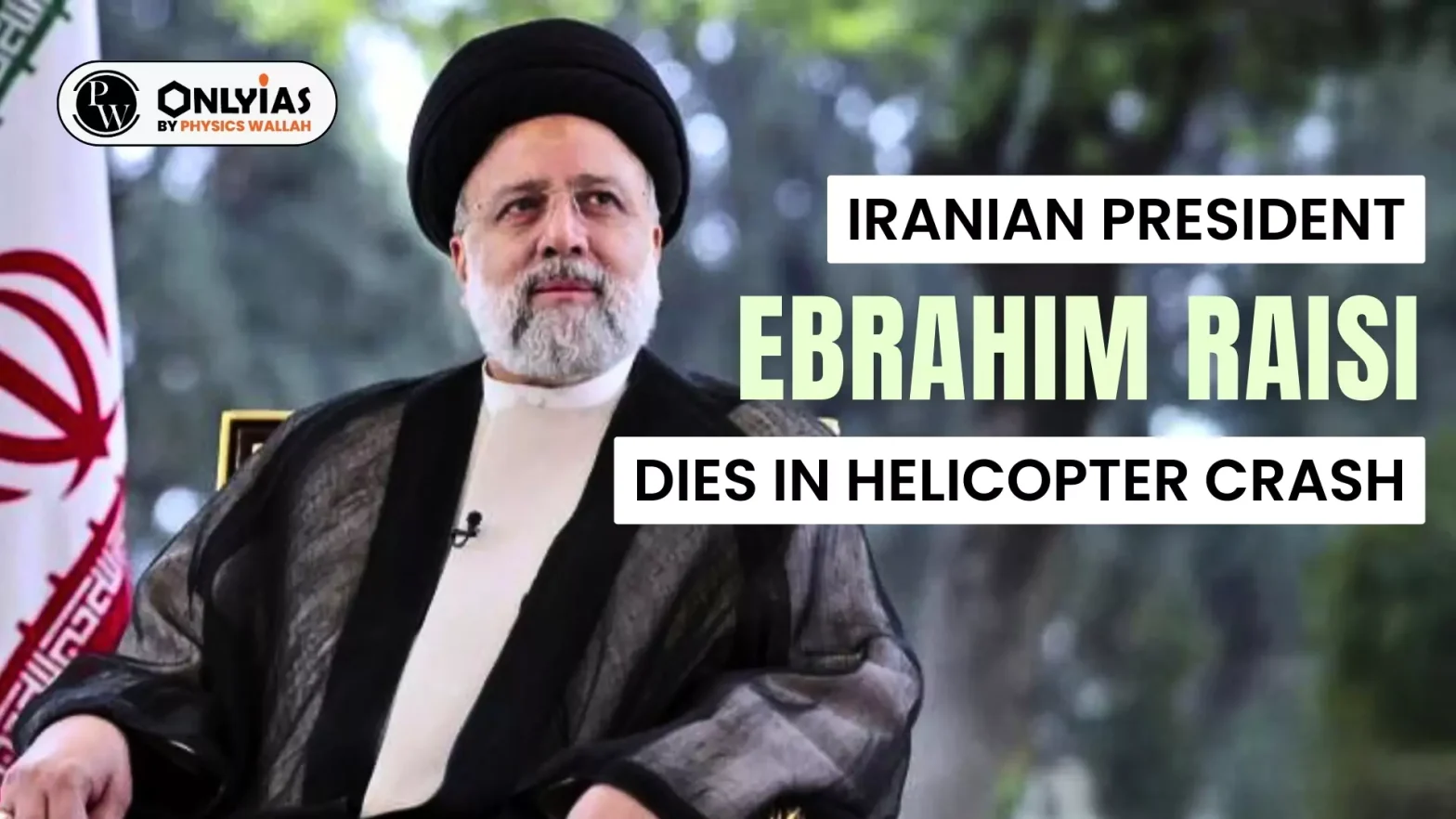Context
The death of Iranian President Ebrahim Raisi, and Foreign Minister Hossein Amir-Abdollahian in a helicopter crash in northwestern Iran due to bad weather has sent shockwaves throughout West Asia.
Rise of Iranian President Ebrahim Raisi
- Raisi’s Rise to Power in 2021: Ebrahim Raisi, a conservative cleric, rose to power in 2021 after eight years of rule by moderate President Hassan Rouhani, who signed the 2015 nuclear deal with the U.S. and other world powers.
Enroll now for UPSC Online Course
- Rouhani’s Unfulfilled Promises: Mr. Rouhani’s promise of change and prosperity through dialogue did not materialize as the then U.S. President Donald Trump sabotaged the deal in 2018 and reimposed sanctions on Iran.
- Conservative Ascendancy: When moderates lost their face and morale, the conservatives tightened their grip on the state through Raisi.
- Progress During Raisi’s Rule: A confidant of Supreme Leader Ayatollah Ali Khamenei, Raisi escalated a crackdown on civil rights at home
- Strengthened Iran’s ties with Russia and China
- Doubled down on its support for non-state militias such as Hamas and Hezbollah and expanded Iran’s nuclear programme.
- Potential Successor: In three years, he emerged as one of Iran’s most powerful men and was seen as a potential successor to Mr. Khamenei.
Challenges Following Iranian President Ebrahim Raisi Death
- Economic Struggles and Social Unrest: Iran’s President’s demise arrives amidst economic turmoil due to U.S. sanctions and efforts to quell social unrest.
- External Challenges: The nuclear agreement remains defunct, and tensions escalate in the Middle East.
- In April, Raisi orchestrated an unprecedented assault on Israel in retaliation for their strike on the Iranian consulate in Damascus. Israel’s restrained response averted a full-scale conflict, yet tensions persist.
- Loss of Influential Figures: Iran has suffered the loss of prominent officials in recent years. With the passing of Raisi and Amir-Abdollahian, the Islamic Republic mourns the loss of seasoned leaders—a crisis-tested cleric-administrator and a seasoned diplomat.
- Rise of Conspiracy Theories: Amidst geopolitical tensions, Raisi’s passing might ignite conspiracy theories, exacerbating regional tensions.
Way Forward
- Investigation of the Crash: It’s essential for Iran to thoroughly investigate the crash.
- Smooth Transition to New Presidency: Ensuring a seamless transition to a new presidency is paramount. First Vice-President Mohammed Mokhber will temporarily assume presidential duties, with a presidential election expected within 50 days.
Enroll now for UPSC Online Classes
Conclusion
A change in presidency is unlikely to alter Iran’s foreign policy direction, but the loss of one of the most experienced and ideologically disciplined defenders of the revolution and a transition amid domestic and regional uncertainties, is an added challenge to the Islamic Republic.
![]() 21 May 2024
21 May 2024
